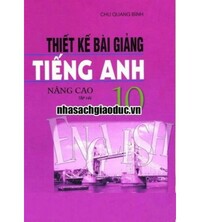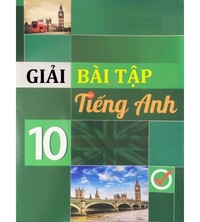Đề thi học kì 2 Tiếng Anh 10 Friends Global - Đề số 1
I. Find the word which has a different sound in the part underlined. II. Choose the word which has a different stress pattern from the others. III. Choose the best one (A, B, C or D) to complete the sentence or replace the underlined word. IV. Complete the sentences with the words in the brackets by adding the correct suffix. VI. Read the texts. Match the writers (Katie, Ben, Gareth, and Davina) with the questions below.
Đề bài
I. Find the word which has a different sound in the part underlined.
1.
A. camcorder
B. camera
C. radio
D. ceramic
2.
A. copper
B. golden
C. profile
D. headphone
II. Choose the word which has a different stress pattern from the others.
3.
A. earbud
B. rubber
C. leather
D. attach
4.
A. microphone
B. develop
C. vehicle
D. company
III. Choose the best one (A, B, C or D) to complete the sentence or replace the underlined word.
5. Martin’s father and grandfather haven’t got much hair. He says that ________________ has always been a problem for men in his family.
A. deafness
B. baldness
B. blindness
D. dumbness
6. Maybe the robot was the best ________________ of the 20th century.
A. invention
B. action
C. improvement
D. appliance
7. Look, it’s working. You can see the ________________ of the cursor on the screen.
A. statement
B. reaction
C. movement
D. display
8. I think the first antibiotic was the greatest medical ________________ .
A. exploitation
B. finding
C. exploration
D. discovery
9. English ________ at state schools as a compulsory lesson for 20 years.
A. is taught
B. was taught
C. has been taught
D. is being taught
10. Last night I ____________ my key. I had to ask my roommate to open the door for me.
A. lose
B. had lost
C. have lost
D. lost
11. Natalie is __________ have a baby next month.
A. go to
B. goes to
C. going
D. going to
12. I want to buy a couple of magazines, so I’m going to the ________.
A. newsagent’s
B. jeweller's
C. optician’s
D. florist’s
13. If I ___________ how to do these maths exercises, I ___________ my homework tonight.
A. know – finish
B. know – will finish
C. knew – would finish
D. knew – will finish
14. In the last century, a lot of the world’s forests _________ to provide wood for making furniture and paper.
A. destroyed
B. are destroyed
C. have been destroyed
D. were destroyed
15. “The doorbell is ringing”. - “OK, I______________ it.”
A. answer
B. will answer
C. am answering
D. answered
IV. Complete the sentences with the words in the brackets by adding the correct suffix.
16. You should a good pair of sunglasses for _________ against the sun’s rays. (PROTECT)
17. It’s important that students develop an ________ of how the internet can be used. (AWARE)
18. I think I have made a wrong __________ because I didn’t spend much time on it. (DECIDE)
19. The new policy has brought _________ to our country. (PROSPER)
20. The _______ of the computer has revolutionized the business world. (INVENT)
VI. Read the texts. Match the writers (Katie, Ben, Gareth, and Davina) with the questions below.
Young entrepreneurs
How do you become a successful entrepreneur while you’re still at school? Four young people explain how they did it.
Katie Bradley, 14 - The chef
I’ve always eaten cakes, but when I learned to make them I realised how unhealthy many of them were. So I wanted to find a way to make healthy cakes, without much sugar. Instead of lots of sugar, I used more fruit and healthy kinds of low-sugar chocolate. The results were amazing – they were delicious, and also good for you. My mum encouraged me to start selling them at our local market, and I came up with the name ‘Katie’s cakes’. I was surprised at how popular they were! Now I’ve been contacted by a big supermarket. They’re keen to sell my products, so I’m really excited!
Ben Stewart, 15 - The blogger
I love writing, so one day my teacher suggested I started a blog. But there are lots of blogs on the internet, and I wanted my blog to be different. Then I had a great idea. I'm really interested in shopping, and I also know more about money than most teenagers: you know, how to earn it and how to save it. So I started a shopping and money blog for teenagers. I give people advice about shopping − and if they have money problems, I tell them the best thing to do. I started the website a year ago, and it's grown and grown. Thousands of people visit my blog now, and I make money from adverts on the blog. I’ve had lots of great messages from people too. One person said that I had changed their life. That’s awesome!
Gareth Jones, 13 - The website designer
I’ve had a computer since I was six years old, so I’ve grown up with I.T. I use websites all the time to help me with my homework. But in the past I often couldn’t find the answers to simple questions very quickly. I realised that many teenagers were probably having the same problem. So I came up with an idea for a new website. It's designed to help people with their homework, and it's already become very popular. It's for young people and written by young people too. It doesn’t cost anything to use the website, but I have advertisements on there so I’m making a lot of money. It’s brilliant!
Davina Richards, 16 - The online seller
When I was twelve years old, I wanted to go on a school trip. But my mum said that she wouldn’t pay for it − I could only go on the trip if I paid for it myself. So, I needed to sell something and make money. My mum showed me how to use eBay, and I looked through my old CDs, books and gadgets and decided which ones to sell. I made £100 in the first few days, and after that I couldn’t stop. Now I’ve got an online shop. I buy things to sell in my shop, and my friends and I make things to sell online too.
Which person …
21. had an idea because they were having trouble with something?
22. started by selling some of his/her old things?
23. gives free advice to people?
24. made something in a different way?
VII. Read the text. Choose the correct answers.
On top of the world
In January 2015, Kevin Jorgeson and Tommy Caldwell climbed to the top of the Dawn Wall of El Capitan − a famous mountain in Yosemite National Park, USA. This is often described as the world’s most difficult rock climb. It took Jorgeson and Caldwell eighteen days to climb the 900 metres to the top! During this time, they hung tents off the rock, and ate and slept in them. The Dawn Wall is so difficult because there is nothing big for climbers to hold onto. Jorgeson and Caldwell had to climb by holding tiny pieces of rocks with the ends of their fingers. They used ropes to protect themselves from falling, but not to help them climb.
Kevin Jorgeson nearly didn't finish the climb. He found one part of the Dawn Wall extremely difficult. It took him seven days to do this part, and he fell eleven times. His fingers were damaged too, so he had to wait for them to get better before he could continue. But in the end, both men finished the climb together. It was an amazing achievement.
Only two weeks later, an ice climber called Will Gadd became the first person to climb a frozen part of the Niagara Falls. These falls, on the Niagara River between America and Canada, are the biggest waterfalls in North America. They are made of three separate waterfalls, and Gadd climbed the Horseshoe Falls, on the Canadian side. In winter, a part of these 50.9 metre falls freezes, and Gadd wanted to climb up the ice. But it was an extremely difficult climb. The ice was very thick in some places, but not in other places. And because only a part of the waterfall was frozen, a lot of water fell past Gadd as he climbed. Gadd knew that if he fell, he would probably die− but he got to the top.
But why do people want to do dangerous climbs like these? 'Dangerous situations are very exciting,' says climber Terrence Jones. 'They make you feel alive.' Humans have always looked for challenges, but many of the old challenges – like climbing Mount Everest – aren’t exciting enough for some climbers because so many people have already done them. ‘Climbers like Caldwell and Gadd want to achieve more than anyone else,’ says Jones, ‘so that the world will read about them in the papers and see them on TV.’
One day people will complete all of the difficult climbs on Earth, so what will climbers do then? ‘I don’t know,’ says Jones. ‘But perhaps one day far in the future people won’t climb on Earth. There are still mountains to climb on Mars!’ This may never happen, of course, but one thing is certain: the search for adventure will not stop.
25. What is true about the climb of the Dawn Wall?
A. The climbers couldn't sleep until they finished.
B. The climbers completed it at the same time.
C. Both climbers found it quite easy.
D. Ropes helped both men to climb.
26. The writer says that Will Gadd’s climb was difficult because ___________
A. he got wet.
B. it was in three parts.
C. the ice was different in different places.
D. it was extremely cold.
27. Terrence Jones thinks that people do dangerous climbs because ____________
A. they like the excitement.
B. they want to die.
C. they feel lucky to be alive.
D. they aren’t afraid of anything.
28. He suggests that in the future, some people ____________
A. will find more challenging climbs on Earth.
B. won’t want to climb mountains any more.
C. will be more interested in space travel.
D. may climb on other planets.
VIII. Complete the second sentence so that it means the same as the first sentence.
29. My friends and I arrived here three months ago.
My friends and I ___________________________.
30. Jenny said, ‘I found a great music website yesterday.’
Jenny said that _____________________________.
31. Alice has sold all the tickets for Friday's concert.
All the tickets for Friday's concert ______________.
32. We can't buy the tickets because they're so expensive.
If ________________________________________.
IX. Listen to an interview about a competition for young inventors. Are the sentences TRUE or FALSE?
33. Children aged 8–13 years old can enter the competition this year.
34. Inventions can be original ideas or ways to make an old product better.
35. When people first enter the competition, they don’t have to build their inventions.
36. There will be TV programme about the competition.
X. Listen to a woman giving travel advice and choose the correct answers (a–c).
37. Fiona writes ___________
A. articles for a website.
B. books about travel.
C. articles for a newspaper.
38. Fiona says that it’s OK to go to remote places __________
A. in the daytime.
B. with other people.
C. if you’re in a taxi
39. Fiona says that travel guides contain useful information about
A. which places are dangerous.
B. the best local restaurants.
C. the safest transport to use.
40. Fiona says that using a credit card
A. is safer than using cash.
B. is cheaper than using cash.
C. is more difficult when you’re abroad.
----------------THE END---------------
Đáp án
HƯỚNG DẪN GIẢI
Thực hiện: Ban chuyên môn

29. My friends and I haven’t arrived here for three months.
30. Jenny said that she had found a great music website the day before.
31. All the tickets for Friday's concert have been sold.
32. If the tickets weren’t so expensive, we could buy them.
HƯỚNG DẪN GIẢI CHI TIẾT
1. C
Kiến thức: Phát âm “a”
Giải thích:
A. camcorder /ˈkæmˌkɔː.dər/
B. camera /ˈkæm.rə/
C. radio /ˈreɪ.di.əʊ/
D. ceramic /səˈræm.ɪk/
Phần được gạch chân ở phương án C được phát âm /ei/, các phương án còn lại phát âm /æ/.
Chọn C
2. A
Kiến thức: Phát âm “o”
Giải thích:
A. copper /ˈkɒp.ər/
B. golden /ˈɡəʊl.dən/
C. profile /ˈprəʊ.faɪl/
D. headphone /ˈhed.fəʊn/
Phần được gạch chân ở phương án A được phát âm /ɒ/, các phương án còn lại phát âm /əʊ/.
Chọn A
3. D
Kiến thức: Trọng âm
Giải thích:
A. earbud /ˈɪə.bʌd
B. rubber /ˈrʌb.ər/
C. leather /ˈleð.ər/
D. attach /əˈtætʃ/
Phương án D có trọng âm 2, các phương án còn lại có trọng âm 1.
Chọn D
4. B
Kiến thức: Trọng âm
Giải thích:
A. microphone /ˈmaɪ.krə.fəʊn/
B. develop /dɪˈvel.əp/
C. vehicle /ˈvɪə.kəl/
D. company /ˈkʌm.pə.ni/
Phương án B có trọng âm 2, các phương án còn lại có trọng âm 1.
Chọn B
5. B
Kiến thức: Từ vựng
Giải thích:
A. deafness (n): điếc
B. baldness (n): hói
B. blindness (n): mù
D. dumbness (n): câm
Martin’s father and grandfather haven’t got much hair. He says that baldness has always been a problem for men in his family.
(Cha và ông của Martin không có nhiều tóc. Anh ấy nói rằng chứng hói đầu luôn là một vấn đề đối với những người đàn ông trong gia đình anh ấy.)
Chọn B
6. A
Kiến thức: Từ vựng
Giải thích:
A. invention (n): phát minh
B. action (n): hành động
C. improvement (n): cải tiến
D. appliance (n): thiết bị
Maybe the robot was the best invention of the 20th century.
(Có lẽ robot là phát minh tốt nhất của thế kỷ 20.)
Chọn A
7. C
Kiến thức: Từ vựng
Giải thích:
A. statement (n): tuyên bố
B. reaction (n): phản ứng
C. movement (n): sự di chuyển
D. display (n): hiển thị
Look, it’s working. You can see the movement of the cursor on the screen.
(Hãy nhìn xem, nó đang hoạt động. Bạn có thể thấy chuyển động của con trỏ trên màn hình.)
Chọn C
8. D
Kiến thức: Từ vựng
Giải thích:
A. exploitation (n): khai thác
B. finding (n): phát hiện
C. exploration (n): thăm dò
D. discovery (n): khám phá
I think the first antibiotic was the greatest medical discovery.
(Tôi nghĩ rằng loại thuốc kháng sinh đầu tiên là khám phá y học vĩ đại nhất.)
Chọn D
9. C
Kiến thức: Thì hiện tại hoàn thành
Giải thích:
Dấu hiệu nhận biết “for” (khoảng) => cấu trúc thì hiện tại hoàn thành ở dạng khẳng định câu bị động chủ ngữ số ít “English” (tiếng Anh): S + has + been V3/ed + (by O).
teach – taught – taught (v): dạy
English has been taught at state schools as a compulsory lesson for 20 years.
(Tiếng Anh đã được dạy tại các trường công lập như một tiết học bắt buộc trong 20 năm.)
Chọn C
10. D
Kiến thức: Thì quá khứ đơn
Giải thích:
Dấu hiệu nhận biết “last night” (tối qua) => cấu trúc thì quá khứ đơn ở dạng khẳng định với động từ thường: S + V2/ed.
lose – lost – lost (v): mất
Last night I lost my key. I had to ask my roommate to open the door for me.
(Đêm qua tôi bị mất chìa khóa. Tôi phải nhờ bạn cùng phòng mở cửa cho tôi.)
Chọn D
11. D
Kiến thức: Thì tương lai gần
Giải thích:
Thì tương lai gần dùng để diễn tả hành động đã được lên kế hoạch và có tính toán từ trước trong tương lai gần.
Dấu hiệu nhận biết “next month” (tháng sau) => cấu trúc thì tương lai gần chủ ngữ số ít “Natalie” ở dạng khẳng định: S + is + going to + Vo (nguyên thể).
Natalie is going to have a baby next month.
(Natalie sắp có em bé vào tháng tới.)
Chọn D
12. A
Kiến thức: Từ vựng
Giải thích:
A. newsagent’s (n): quầy bán báo
B. jeweller's (n): tiệm trang sức
C. optician’s (n): tiệm khám mắt
D. florist’s (n): tiệm bán hoa
I want to buy a couple of magazines, so I’m going to the newsagent’s.
(Tôi muốn mua một vài tạp chí, vì vậy tôi sẽ đến quầy bán báo.)
Chọn A
13. B
Kiến thức: Câu điều kiện loại 1
Giải thích:
Câu điều kiện loại 1 dùng để đặt ra một điều kiện có thể có thật ở hiện tại hoặc tương lai với kết quả có thể xảy ra.
Cấu trúc câu điều kiện loại 1: If + S + V(s/es), S + will + Vo (nguyên thể)
If I know how to do these maths exercises, I will finish my homework tonight.
(Nếu tôi biết cách làm những bài tập toán này, tôi sẽ hoàn thành bài tập về nhà tối nay.)
Chọn B
14. A
Kiến thức: Thì hiện tại hoàn thành
Giải thích:
Dấu hiệu nhận biết “in the last century” “trong thế kỉ vừa qua” => cấu trúc thì hiện tại hoàn thành ở dạng khẳng định thể bị động chủ ngữ số nhiều “forests” (rừng): S + have + been + V3/ed + (by O).
destroy – destroyed – destroyed (v): phá hủy
In the last century, a lot of the world’s forests have been destroyed to provide wood for making furniture and paper.
(Trong thế kỷ trước, rất nhiều khu rừng trên thế giới đã bị phá hủy để cung cấp gỗ làm đồ nội thất và giấy.)
Chọn A
15. B
Kiến thức: Thì tương lai đơn
Giải thích:
Thì tương lai đơn dùng đề đưa ra một lời đề nghị giúp đỡ.
Cấu trúc thì tương lai đơn ở dạng khẳng định: S + will + Vo (nguyên thể)
“The doorbell is ringing”. - “OK, I will answer it.”
("Chuông cửa reo". - “Được, tôi sẽ trả lời.”)
Chọn B
16. protecting
Kiến thức: Từ vựng – Từ loại
Giải thích:
Sau giới từ “for” (cho) cần một động từ ở dạng V-ing chỉ hành động.
protect (v): bảo vệ
You should have a good pair of sunglasses for protecting against the sun’s rays.
(Bạn nên có một cặp kính râm tốt để bảo vệ khỏi tia nắng mặt trời.)
Đáp án: protecting
17. awareness
Kiến thức: Từ vựng – Từ loại
Giải thích:
Sau mạo từ “an” cần một danh từ đếm được số ít.
aware (v): nhận thức => awareness (n): ý thức
It’s important that students develop an awareness of how the internet can be used.
(Điều quan trọng là học sinh phát triển nhận thức về cách sử dụng internet.)
Đáp án: awareness
18. decision
Kiến thức: Từ vựng – Từ loại
Giải thích:
Sau tính từ “wrong” (sai) cần một danh từ.
Sau mạo từ “a” cần một danh từ đếm được số ít.
decide (v): quyết định => decision (n): quyết định
I think I have made a wrong decision because I didn’t spend much time on it.
(Tôi nghĩ rằng tôi đã đưa ra một quyết định sai lầm vì tôi đã không dành nhiều thời gian cho nó.)
Đáp án: decision
19. prosperity
Kiến thức: Từ vựng – Từ loại
Giải thích:
Sau động từ “brought” (mang lại) cần một danh từ.
prosper (v): phát đạt => prosperity (n): sự thịnh vượng
The new policy has brought prosperity to our country.
(Chính sách mới đã mang lại sự thịnh vượng cho đất nước chúng ta.)
Đáp án: prosperity
20. invention
Kiến thức: Từ vựng – Từ loại
Giải thích:
Sau mạo từ “the” cần một danh từ.
Do động từ “has” nên chủ ngữ số ít.
invent (v): phát minh => invention (n): sự phát minh
The invention of the computer has revolutionized the business world.
(Việc phát minh ra máy tính đã cách mạng hóa thế giới kinh doanh.)
Đáp án: invention
21. Gareth
Kiến thức: Đọc hiểu
Giải thích:
had an idea because they were having trouble with something?
(có một ý tưởng bởi vì họ đang gặp rắc rối với một cái gì đó?)
Thông tin: I realised that many teenagers were probably having the same problem. So I came up with an idea for a new website.
(Tôi nhận ra rằng nhiều thanh thiếu niên có thể gặp phải vấn đề tương tự. Vì vậy, tôi đã nảy ra một ý tưởng cho một trang web mới.)
Đáp án: Gareth
22. Davina
Kiến thức: Đọc hiểu
Giải thích:
started by selling some of his/her old things?
(bắt đầu bằng cách bán một số đồ cũ của mình?)
Thông tin: I could only go on the trip if I paid for it myself. So, I needed to sell something and make money.
(Tôi chỉ có thể thực hiện chuyến đi nếu tôi tự trả tiền. Vì vậy, tôi cần phải bán một cái gì đó và kiếm tiền.)
Đáp án: Davina
23. Ben
Kiến thức: Đọc hiểu
Giải thích:
gives free advice to people?
(tư vấn miễn phí cho mọi người?)
Thông tin: I give people advice about shopping − and if they have money problems, I tell them the best thing to do.
(Tôi đưa ra lời khuyên cho mọi người về việc mua sắm – và nếu họ gặp vấn đề về tiền bạc, tôi sẽ nói với họ điều tốt nhất nên làm.)
Đáp án: Ben
24. Katie
Kiến thức: Đọc hiểu
Giải thích:
made something in a different way?
(làm một cái gì đó theo một cách khác?)
Thông tin: Instead of lots of sugar, I used more fruit and healthy kinds of low-sugar chocolate.
(Thay vì nhiều đường, tôi sử dụng nhiều trái cây và các loại sô cô la ít đường tốt cho sức khỏe.)
Đáp án: Katie
25. B
Kiến thức: Đọc hiểu
Giải thích:
Điều gì là đúng về việc leo lên Dawn Wall?
A. Những người leo núi không thể ngủ cho đến khi họ hoàn thành.
B. Những người leo núi đã hoàn thành nó cùng một lúc.
C. Cả hai người leo núi đều thấy khá dễ dàng.
D. Dây thừng đã giúp cả hai người đàn ông leo lên.
Thông tin: But in the end, both men finished the climb together. It was an amazing achievement.
(Nhưng cuối cùng, cả hai người đàn ông đã hoàn thành cuộc leo núi cùng nhau. Đó là một thành tích đáng kinh ngạc.)
Chọn B
26. C
Kiến thức: Đọc hiểu
Giải thích:
Người viết nói rằng việc leo núi của Will Gadd rất khó khăn vì ___________.
A. anh ấy bị ướt.
B. nó có ba phần.
C. băng ở những nơi khác nhau là khác nhau.
D. trời rất lạnh.
Thông tin: But it was an extremely difficult climb. The ice was very thick in some places, but not in other places.
(Nhưng đó là một cuộc leo núi cực kỳ khó khăn. Băng rất dày ở một số nơi, nhưng không phải ở những nơi khác.)
Chọn C
27. A
Kiến thức: Đọc hiểu
Giải thích:
Terrence Jones nghĩ rằng mọi người leo trèo nguy hiểm vì…
A. họ thích sự hào hứng.
B. họ muốn chết.
C. họ cảm thấy may mắn khi được sống.
D. họ không sợ bất cứ điều gì.
Thông tin: Dangerous situations are very exciting,' says climber Terrence Jones. 'They make you feel alive.'
(Những tình huống nguy hiểm rất thú vị', nhà leo núi Terrence Jones nói. 'Họ làm cho bạn cảm thấy còn tồn tại.')
Chọn A
28. D
Kiến thức: Đọc hiểu
Giải thích:
Anh ấy gợi ý rằng trong tương lai, một số người _________
A. sẽ tìm thấy nhiều thử thách leo núi hơn trên Trái đất.
B. không muốn leo núi nữa.
C. sẽ quan tâm nhiều hơn đến du hành vũ trụ.
D. có thể leo lên các hành tinh khác.
Thông tin: But perhaps one day far in the future people won’t climb on Earth. There are still mountains to climb on Mars!
(Nhưng có lẽ một ngày không xa trong tương lai con người sẽ không leo lên Trái đất nữa. Vẫn còn những ngọn núi để leo trên sao Hỏa!)
Chọn D
29.
Kiến thức: Thì hiện tại hoàn thành
Giải thích:
Cấu trúc thì quá khứ đơn: S + V2/ed + khoảng thời gian + ago.
Cấu trúc thì hiện tại hoàn thành: S + have / has + NOT + V3/ed + for + khoảng thời gian.
arrive – arrived – arrived (v): đến
My friends and I arrived here three months ago.
(Bạn bè của tôi và tôi đã đến đây ba tháng trước.)
Đáp án: My friends and I haven’t arrived here for three months.
(Bạn bè của tôi và tôi đã không đến đây trong ba tháng.)
30.
Kiến thức: Câu tường thuật
Giải thích:
Cấu trúc viết câu tường thuật dạng kể với động từ tường thuật “said” (nói): S + said + (that) + S + V (lùi thì).
- Lùi thì: thì quá khứ đơn “found” => thì quá khứ hoàn thành “had found”.
- Đổi trạng ngữ chỉ thời gian: “yesterday” (hôm qua) => “the day before” (ngày hôm trước).
find – found – found (v): tìm ra
Jenny said, ‘I found a great music website yesterday.’
(Jenny nói, 'Tôi đã tìm thấy một trang web âm nhạc tuyệt vời ngày hôm qua.')
Đáp án: Jenny said that she had found a great music website the day before.
(Jenny nói rằng cô ấy đã tìm thấy một trang web âm nhạc tuyệt vời vào ngày hôm trước.)
31.
Kiến thức: Câu bị động
Giải thích:
Thì hiện tại hoàn thành
- câu chủ động với: S + have/ has + V3/ed.
- câu bị động với chủ ngữ số nhiều “tickets” (vé): S + have + been + V3/ed + (by O).
Alice has sold all the tickets for Friday's concert.
(Alice đã bán hết vé cho buổi hòa nhạc hôm thứ Sáu.)
Đáp án: All the tickets for Friday's concert have been sold.
(Tất cả vé cho buổi hòa nhạc hôm thứ Sáu đã được bán hết.)
32.
Kiến thức: Câu điều kiện loại 2
Giải thích:
Câu điều kiện loại 2 diễn tả một điều giả định không có thật ở hiện tại.
Cấu trúc câu điều kiện loại 2: If + S + V2/ed, S + would/ could + Vo (nguyên thể).
We can't buy the tickets because they're so expensive.
(Chúng tôi không thể mua vé vì chúng quá đắt.)
Đáp án: If the tickets weren’t so expensive, we could buy them.
(Nếu vé không quá đắt, chúng ta có thể mua chúng.)
Bài nghe 1:
A: Today in the studio with we have Dave. Dave has organized a competition to find the best young inventor in the country. So, Dave can you tell us a bit more about the competition?
B: Dave: Yeah, sure! My friend and i decided to have the competition because we know young people are great at thinking of amazing ideas for inventions. I've seen some fantastic ideas from people younger than eight years old. We've decided to allow young people aged 14 to 19 to enter this year competition. But next year we are going to allow 8 to 13 years old to enter, too.
A: That’s great! So, what are you looking for?
B: Ideas, really. Maybe you use a product everyday but you think it could be improved or changed in some way or perhaps you’ve got an idea for something really new - a totally new product. It could be something very simple like a plastic cover to protect the vices in the rain. Or it could be something much more difficult to make like a solar powered gadget.
A: Great, so how can people enter the competition?
B: I need to send us a description of their invention. Whether it's completely new or an improvement to an old design. We want to know what it is, how they thought of the idea, and why they think people would want to use it. They also need to provide a very good drawing of the invention.
A: So, they don’t need to be actually make the invention?
B: They can if they want to. It is a simple idea, then why not build it. But if you design something difficult to make, it’s best to just draw a plan.
A: Great! So, what happened when people send their designs to you?
B: The designs will be judged by team of 5 adult inventors. There are some really famous inventors taking part. Each adult inventor will choose the idea that he or she likes best. They will then work on the design with the young inventor. Cameras will film them while they are working, too. There will be a special documentary on Channel 10 about making the inventions.
A: Right! And what will happen after that?
B: Well, the final invention will be made into the product. And we hope that they will become popular, sell, and make a lot of money.
A: Hm, so tell me Dave. What do you think is the best invention for the last 20 years?
Hm, That's a difficult question. Lots of people say it’s 3D-printer because it allows you to print any objects. But I'm more interested in the invention that help people around the world. I think Trevor Baylises radio is amazing because it doesn't use electricity or batteries. Poor people and very remote places in Africa are using it right now.
A: Great! Have you got any more advice for young people before they enter this competition?
B: Yes, You need to think of a product that lots of people want to use. If you can do that, it would be a great invention.
A: Thanks very much, Dave. It’s been great to talk to you.
Tạm dịch:
A: Hôm nay trong phòng thu với chúng tôi có Dave. Dave đã tổ chức một cuộc thi để tìm ra nhà phát minh trẻ xuất sắc nhất trong nước. Vì vậy, Dave, bạn có thể cho chúng tôi biết thêm một chút về cuộc thi không?
B: Dave: Vâng, chắc chắn rồi! Tôi và bạn tôi quyết định tổ chức cuộc thi vì chúng tôi biết những người trẻ tuổi rất giỏi trong việc nghĩ ra những ý tưởng tuyệt vời cho các phát minh. Tôi đã thấy một số ý tưởng tuyệt vời từ những người trẻ hơn tám tuổi. Chúng tôi đã quyết định cho phép những người trẻ tuổi từ 14 đến 19 tham gia cuộc thi năm nay. Nhưng năm tới chúng tôi cũng sẽ cho phép trẻ em từ 8 đến 13 tuổi tham gia.
A: Điều đó thật tuyệt! Vậy bạn đang tìm cái gì?
B: Ý tưởng, thực sự. Có thể bạn sử dụng một sản phẩm hàng ngày nhưng bạn nghĩ rằng nó có thể được cải thiện hoặc thay đổi theo một cách nào đó hoặc có lẽ bạn có ý tưởng về một thứ gì đó thực sự mới - một sản phẩm hoàn toàn mới. Nó có thể là một cái gì đó rất đơn giản như một tấm che nhựa để bảo vệ khi trời mưa. Hoặc nó có thể là thứ gì đó khó chế tạo hơn nhiều như thiết bị chạy bằng năng lượng mặt trời.
A: Tuyệt, vậy làm thế nào mọi người có thể tham gia cuộc thi?
B: Tôi cần gửi cho chúng tôi bản mô tả phát minh của họ. Cho dù đó là thiết kế hoàn toàn mới hay cải tiến từ thiết kế cũ. Chúng tôi muốn biết nó là gì, họ nghĩ ra ý tưởng đó như thế nào và tại sao họ nghĩ mọi người sẽ muốn sử dụng nó. Họ cũng cần cung cấp một bản vẽ rất tốt về sáng chế.
A: Vì vậy, họ không cần phải thực sự tạo ra phát minh?
B: Họ có thể nếu họ muốn. Đó là một ý tưởng đơn giản thì tại sao không xây dựng nó. Nhưng nếu bạn thiết kế một thứ gì đó khó thực hiện, thì tốt nhất bạn chỉ nên vẽ một kế hoạch.
A: Tuyệt vời! Vậy điều gì đã xảy ra khi mọi người gửi thiết kế của họ cho bạn?
B: Các thiết kế sẽ được đánh giá bởi nhóm 5 nhà phát minh trưởng thành. Có một số nhà phát minh thực sự nổi tiếng tham gia. Mỗi nhà phát minh trưởng thành sẽ chọn ý tưởng mà mình thích nhất. Sau đó, họ sẽ làm việc trên thiết kế với nhà phát minh trẻ tuổi. Máy ảnh cũng sẽ quay phim khi họ đang làm việc. Sẽ có một bộ phim tài liệu đặc biệt trên Kênh 10 về việc tạo ra các phát minh.
A: Đúng! Và điều gì sẽ xảy ra sau đó?
B: Chà, phát minh cuối cùng sẽ được đưa vào sản phẩm. Và chúng tôi hy vọng rằng chúng sẽ trở nên phổ biến, bán chạy và kiếm được nhiều tiền.
A: Hừm, vậy hãy nói cho tôi biết Dave. Bạn nghĩ gì là phát minh tốt nhất trong 20 năm qua?
B: Hm, Đó là một câu hỏi khó. Nhiều người nói đó là máy in 3D vì nó cho phép bạn in bất kỳ đối tượng nào. Nhưng tôi quan tâm hơn đến phát minh giúp ích cho mọi người trên khắp thế giới. Tôi nghĩ đài phát thanh Trevor Baylis thật tuyệt vời vì nó không sử dụng điện hay pin. Người nghèo và những nơi rất xa ở Châu Phi đang sử dụng nó ngay bây giờ.
A: Tuyệt vời! Bạn có lời khuyên nào nữa cho các bạn trẻ trước khi bước vào cuộc thi này không?
B: Có, bạn cần nghĩ ra một sản phẩm mà nhiều người muốn sử dụng. Nếu bạn có thể làm điều đó, nó sẽ là một phát minh vĩ đại.
A: Cảm ơn rất nhiều, Dave. Thật tuyệt khi nói chuyện với bạn.
33. False
Kiến thức: Nghe hiểu
Giải thích:
Children aged 8–13 years old can enter the competition this year.
(Trẻ em từ 8–13 tuổi có thể tham gia cuộc thi năm nay.)
Thông tin: We've decided to allow young people aged 14 to 19 to enter this year competition. But next year we are going to allow 8 to 13 years old to enter, too.
(Chúng tôi đã quyết định cho phép những người trẻ tuổi từ 14 đến 19 tham gia cuộc thi năm nay. Nhưng năm tới chúng tôi cũng sẽ cho phép trẻ em từ 8 đến 13 tuổi tham gia.)
Chọn False
34. True
Kiến thức: Nghe hiểu
Giải thích:
Inventions can be original ideas or ways to make an old product better.
(Phát minh có thể là ý tưởng ban đầu hoặc cách để làm cho một sản phẩm cũ tốt hơn.)
Thông tin: Maybe you use a product everyday, but you think it could be improved or changed in some way.
(Có thể bạn sử dụng một sản phẩm hàng ngày nhưng bạn nghĩ rằng nó có thể được cải thiện hoặc thay đổi theo một cách nào đó.)
Chọn True
35. True
Kiến thức: Nghe hiểu
Giải thích:
When people first enter the competition, they don’t have to build their inventions.
(Khi mọi người lần đầu tiên tham gia cuộc thi, họ không phải xây dựng phát minh của mình.)
Thông tin: they don’t need to be actually make the invention? - B: They can if they want to. It is a simple idea, then why not build it. But if you design something difficult to make, it’s best to just draw a plan.
(họ không cần phải thực sự tạo ra phát minh? - B: Họ có thể nếu họ muốn. Nếu là một ý tưởng đơn giản, vậy thì tại sao không xây dựng nó. Nhưng nếu bạn thiết kế một thứ gì đó khó thực hiện, thì tốt nhất bạn chỉ nên vẽ một kế hoạch.)
Chọn True
36. True
Kiến thức: Nghe hiểu
Giải thích:
There will be TV programme about the competition.
(Sẽ có chương trình truyền hình về cuộc thi.)
Thông tin: Cameras will film them while they are working, too. There will be a special documentary on Channel 10 about making the inventions.
(Máy ảnh cũng sẽ quay phim khi họ đang làm việc. Sẽ có một bộ phim tài liệu đặc biệt trên Kênh 10 về việc tạo ra các phát minh.)
Chọn True
37. B
Kiến thức: Nghe hiểu
Giải thích:
Fiona viết ___________
A. bài viết cho một trang web.
B. sách về du lịch.
C. bài báo cho một tờ báo.
Thông tin: Fiona’s been around the world, and she has written several guides about different countries.
(Fiona đã đi khắp thế giới và cô ấy đã viết một số hướng dẫn về các quốc gia khác nhau.)
Chọn B
38. B
Kiến thức: Nghe hiểu
Giải thích:
Fiona nói rằng đi đến những nơi xa xôi cũng được
A. vào ban ngày.
B. với những người khác.
C. nếu bạn đang ở trong một chiếc taxi
Thông tin: Only go to remote places if you're on a tour.
(Chỉ đi đến những nơi xa nếu bạn đang đi du lịch theo tour.)
Chọn B
39. A
Kiến thức: Nghe hiểu
Giải thích:
Fiona nói rằng hướng dẫn du lịch chứa thông tin hữu ích về
A. nơi nào nguy hiểm.
B. các nhà hàng địa phương tốt nhất.
C. vận chuyển an toàn nhất để sử dụng.
Thông tin: many people don't use travel guides, but these guides can tell you which places are dangerous in the city.
(nhiều người không sử dụng hướng dẫn du lịch nhưng những hướng dẫn này có thể cho bạn biết nơi nào nguy hiểm trong thành phố.)
Chọn A
40. A
Kiến thức: Nghe hiểu
Giải thích:
Fiona nói rằng sử dụng thẻ tín dụng
A. an toàn hơn so với sử dụng tiền mặt.
B. rẻ hơn so với sử dụng tiền mặt.
C. khó khăn hơn khi bạn ở nước ngoài.
Thông tin: I think credit cards are much better than cash.
(Tôi nghĩ rằng thẻ tín dụng tốt hơn nhiều so với tiền mặt.)
Chọn A
Bài nghe 2:
Mike: In the studio today, we have Fiona. Fiona’s been around the world, and she has written several guides about different countries. We’ll hear about those books later. First, Fiona is going to answer travel questions that listeners have posted on Tina’s film website. Hello Fiona
Fiona: Hi Mike!
Mike: So, our first question today is from Karen in Cheshire. She wants to know is it OK to change money on the street in Bulgaria?
Fiona: Well, Karen. Many tourists do this in countries like Bulgaria, but I think you should always change money in the bank. Compared to banks, people on the street may offer more money; But if you exchange money with a stranger, you may not get the correct money, or even real money. So, my advice is don’t do it.
Mike: Great! Now, Emma from Essex is going to Peru before she starts university. She wants to know if it is safe to go to remote places alone.
Fiona: OK, Emma. Only go to remote places if you're on a tour. If you're alone, stay more in tourist places. And if you ever are alone in the dark street and you don't feel safe, go to a well-lit place with a lot of people in it, like a shop or restaurant. The people there will help you to call a taxi for example. It's always better to be safe. Also, many people don't use travel guides but these guides can tell you which places are dangerous in the city. That's why I think you should always read one before you go somewhere.
Mike: Now, there are a lot of questions on the Tina's film website about how to avoid crime like mugging when you’re traveling.
Fiona: Yeah, my best advice is to try to look like a local, not like a tourist. Try to work out where you go before you go there, so you don't have to ask for directions and look at a map on the street. And of course don't carry a lot of money around with you or wear very expensive clothes. You don't want to encourage muggers to attack you.
Mike: Great! Now Mark from Manchester wants to know is it safer to use a credit card than carrying cash on holiday?
Fiona: Well, I think credit cards are much better than cash. If someone steals your credit card, it’s difficult for them to use it. The criminal won’t know your pin number and in most countries, you need a pin number to use a credit card now. Oh, and when you buy something while you’re traveling, make sure you work out how much it costs in your currency. Many young people aren’t very good at Maths, they buy things and then they are shocked when they get home when their parents show them the credit card bill.
Mike: OK! And the last question today is from Vony in Cambridge. Is it safe to go camping in France?
Fiona: Well, Vony, it’s fine to camp in most parts of the world if you use a campsite. But if you go camping on the beach, oh by the side of a road for example, it can be dangerous. I wouldn't do that if I didn't know the area really well. Unless I was as a local.
Mike: Right, thanks Fiona. Now about your travel guides.
Tạm dịch:
Mike: Trong phòng thu ngày hôm nay, chúng ta có Fiona. Fiona đã đi khắp thế giới và cô ấy đã viết một số hướng dẫn về các quốc gia khác nhau. Chúng ta sẽ nghe về những cuốn sách đó sau. Đầu tiên, Fiona sẽ trả lời các câu hỏi về du lịch mà thính giả đã đăng trên trang web phim của Tina. Xin chào Fiona
Fiona: Chào Mike!
Mike: Vì vậy, câu hỏi đầu tiên của chúng tôi ngày hôm nay là từ Karen ở Cheshire, cô ấy muốn biết liệu cô ấy có thể đổi tiền trên đường phố ở Bulgaria không?
Fiona: Chà, Karen. Nhiều khách du lịch làm điều này ở các nước như Bulgaria, nhưng tôi nghĩ bạn nên luôn đổi tiền trong ngân hàng. So với ngân hàng, người dân trên phố có thể cho nhiều tiền hơn; Nhưng nếu bạn đổi tiền với một người lạ, bạn có thể không nhận được tiền chính xác, thậm chí là tiền thật. Vì vậy, lời khuyên của tôi là đừng làm điều đó.
Mike: Tuyệt vời! Bây giờ, Emma từ Essex sẽ đến Peru trước khi cô ấy bắt đầu học đại học. Cô ấy muốn biết có an toàn không khi đi đến những nơi xa xôi một mình.
Fiona: Được rồi, Emma. Chỉ đi đến những nơi xa nếu bạn đang đi du lịch theo tour. Nếu bạn ở một mình, hãy ở lại nhiều hơn ở những nơi du lịch. Và nếu bạn từng đi một mình trên con phố tối và cảm thấy không an toàn, hãy đến nơi có nhiều ánh sáng, chẳng hạn như cửa hàng hoặc nhà hàng. Những người ở đó sẽ giúp bạn gọi taxi chẳng hạn. Nó luôn luôn tốt hơn để được an toàn. Ngoài ra, nhiều người không sử dụng hướng dẫn du lịch nhưng những hướng dẫn này có thể cho bạn biết nơi nào nguy hiểm trong thành phố. Đó là lý do tại sao tôi nghĩ bạn luôn nên đọc một cuốn trước khi đi đâu đó.
Mike: Bây giờ, có rất nhiều câu hỏi trên trang web phim của Tina về cách tránh tội phạm như trộm cắp khi bạn đi du lịch.
Fiona: Vâng, lời khuyên tốt nhất của tôi là cố gắng trông giống như một người địa phương, không giống như một khách du lịch. Cố gắng tìm ra nơi bạn đến trước khi bạn đến đó, vì vậy bạn không cần phải hỏi đường và nhìn vào bản đồ trên đường phố. Và tất nhiên, đừng mang theo nhiều tiền bên mình hay những bộ quần áo quá đắt tiền. Bạn không muốn khuyến khích những kẻ phá hoại tấn công bạn.
Mike: Tuyệt vời! Bây giờ Mark từ Manchester muốn biết sử dụng thẻ tín dụng có an toàn hơn mang theo tiền mặt trong kỳ nghỉ không?
Fiona: Chà, tôi nghĩ thẻ tín dụng tốt hơn nhiều so với tiền mặt. Nếu ai đó đánh cắp thẻ tín dụng của bạn, họ sẽ khó sử dụng nó. Tội phạm sẽ không biết số pin của bạn và ở hầu hết các quốc gia, bạn cần số pin để sử dụng thẻ tín dụng ngay bây giờ. Ồ, và khi bạn mua thứ gì đó khi đang đi du lịch, hãy đảm bảo rằng bạn tính toán xem thứ đó có giá bao nhiêu bằng đơn vị tiền tệ của bạn. Nhiều bạn trẻ học Toán không giỏi lắm, mua đồ rồi về nhà giật mình khi được bố mẹ cho xem hóa đơn thẻ tín dụng.
Mike: Được rồi! Và câu hỏi cuối cùng hôm nay là của Vony ở Cambridge. Đi cắm trại ở Pháp có an toàn không?
Fiona: Chà, Vony, bạn có thể cắm trại ở hầu hết các nơi trên thế giới nếu bạn sử dụng một khu cắm trại. Nhưng nếu bạn đi cắm trại trên bãi biển, chẳng hạn như bên đường, điều đó có thể nguy hiểm. Tôi sẽ không làm điều đó nếu tôi không biết rõ khu vực này. Trừ khi tôi là người địa phương.
Mike: Được rồi, cảm ơn Fiona. Bây giờ về hướng dẫn du lịch của bạn.
Search google: "từ khóa + timdapan.com" Ví dụ: "Đề thi học kì 2 Tiếng Anh 10 Friends Global - Đề số 1 timdapan.com"







